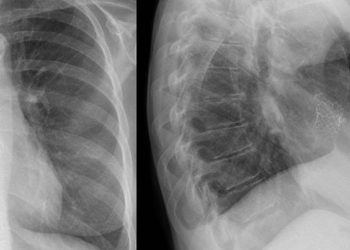Zilebesiran improves blood pressure management in patients with hypertension
1. In this randomized controlled trial, zilebesiran resulted in reduced serum angiotensinogen levels and lowered blood pressure among patients with hypertension as compared to a placebo.
2. The effect of zilebesiran on blood pressure was consistent in a subgroup with a high salt diet as well as with co-administration with irbesartan.
Evidence Rating Level: 1 (Excellent)
Study Rundown: Hypertension is increasingly prevalent and a major contributor to the development of cardiovascular disease. Despite available effective medications for management, many patients with hypertension do not reach guideline-recommended blood pressure targets. This can be partially due to factors such as poor adherence and diurnal variations in blood pressure. Zilebesiran is a long-acting ribonucleic acid (RNA) interference agent designed to reduce angiotensinogen messenger RNA and angiotensinogen production. This study was a phase one trial assessing the efficacy and safety of single-dose zilebesiran in patients with hypertension. First, zilebesiran was compared against a placebo, and by 24 weeks, it resulted in reduced angiotensinogen levels and lowered blood pressures, sustained throughout the diurnal cycle. Second, following one week of a low-salt diet, zilebesiran attenuated the effect of a high-salt diet on participants’ blood pressure rise. Lastly, when co-administered with irbesartan, the antihypertensive effect of zilebesiran was augmented. Adverse event rates were comparable to placebo or no treatment, except for injection-site reactions related to zilebesiran. This early-phase trial was limited by a small sample size and short follow-up. However, these results demonstrated that zilebesiran resulted in a durable reduction of blood pressure through to 24 weeks with an acceptable safety profile.
Click here to read the study in NEJM
In-Depth [randomized controlled trial]: The current study reported results from phase one of a four-part trial to investigate zilebesiran in patients with hypertension. Patients were included if they were between 18 to 65 years of age with hypertension after discontinuing antihypertensives for at least two weeks. Exclusion criteria included secondary hypertension, postural hypotension, diabetes, previous cardiovascular events, and the use of a beta-blocker. In part A of the trial, 84 patients were randomized 2:1 to receive either single-dose subcutaneous zilebesiran (10, 25, 50, 100, 200, 400, or 800mg) or placebo. In part B, 12 patients were placed on a low-salt diet followed by a high-salt diet for two weeks; they were then randomized 2:1 to receive 800mg zilebesiran or placebo and re-challenged with the same diet regimen. Further, in part E16 patients received 800mg of zilebesiran, and those whose systolic blood pressure was 120mmHg received additional daily irbesartan 300mg. The primary outcome was the rate of adverse events. The aggregate analysis found similar percentage rates of adverse events among zilebesiran and placebo groups, such as headache and upper respiratory tract infection. Injection-site reaction occurred exclusively in zilebesiran recipients. In part A, there was a negative association between zilebesiran dose and serum angiotensinogen (r=-0.56 at week 8; 95% Confidence Interval [CI] -0.69 to -0.39). Similarly, zilebesiran dose was negatively associated with 24-hour ambulatory systolic blood pressure (r=-0.41 at week 8; 95% CI -0.58 to -0.21). Blood pressure reduction was sustained through to week 24. In part B, zilebesiran attenuated the return to baseline of blood pressure brought on by a high-salt diet challenge after a period of a low salt diet. In part E, 10 of 16 patients received additional irbesartan and experienced further decreases in blood pressure. This provided early evidence demonstrating that zilebesiran had an acceptable safety profile and resulted in reductions in angiotensinogen and blood pressure among patients with hypertension.
Image: PD
©2023 2 Minute Medicine, Inc. All rights reserved. No works may be reproduced without expressed written consent from 2 Minute Medicine, Inc. Inquire about licensing here. No article should be construed as medical advice and is not intended as such by the authors or by 2 Minute Medicine, Inc.







